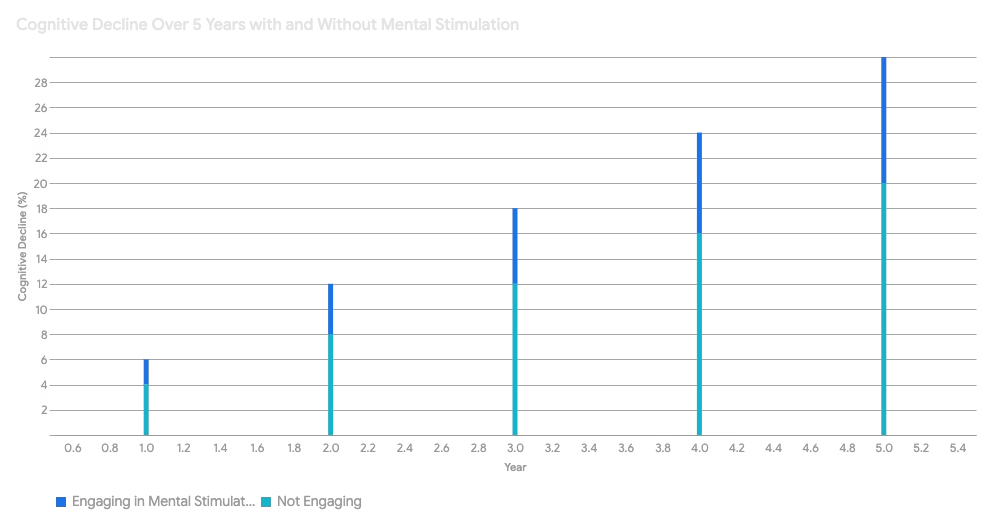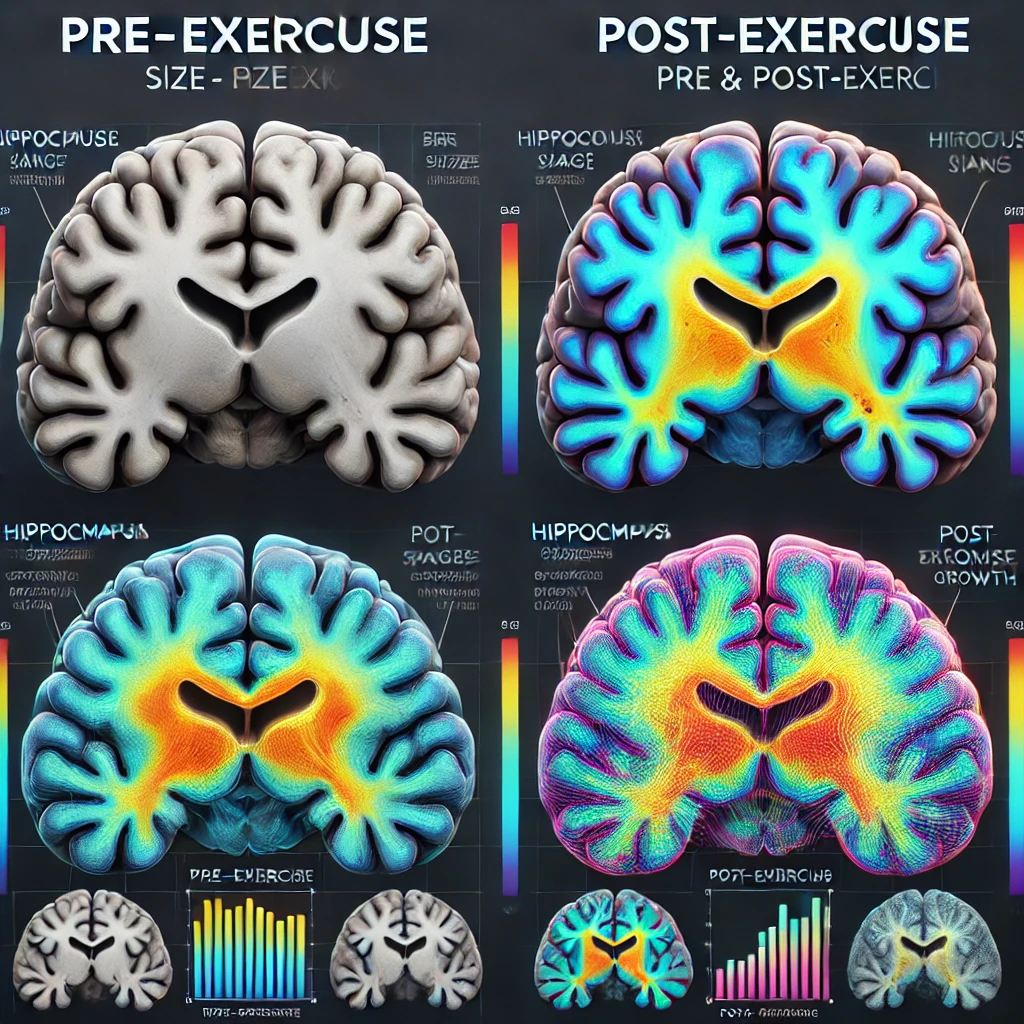Your brain is the control center of your body, responsible for your thoughts, emotions, and actions. Yet, in our fast-paced world, we often overlook its care. Like any other organ, your brain requires nurturing to stay healthy and function at its best. Here, we explore 12 science-backed strategies to keep your brain healthy and sharp, complemented by real-life scenarios, quotes, and expert insights.
1. Stimulate Your Mind: Brain Workouts Matter
“Once you stop learning, you start dying.” – Albert Einstein
Your brain thrives on challenges. Activities like solving puzzles, playing chess, or learning new skills stimulate neural connections, keeping your mind agile.
The Science:
Mental stimulation strengthens neural connections and encourages neuroplasticity, the brain’s ability to adapt and grow. According to a study published in Frontiers in Aging Neuroscience (2014), individuals engaging in puzzles, board games, and cognitive exercises exhibited a slower rate of cognitive decline.
Case Study:
Mary, a 65-year-old retiree, joined a weekly chess club. After six months, she reported improved memory and strategic thinking. Neuroimaging studies revealed enhanced activity in her prefrontal cortex, responsible for planning and problem-solving.
Visual Insight:
- Graph: A bar chart comparing cognitive decline in adults engaging vs. not engaging in mental stimulation over five years.

Tip: Dedicate 20 minutes daily to brain-stimulating activities like Sudoku, crosswords, or even learning a musical instrument.
2. Exercise: A Workout for Your Brain
“A healthy mind in a healthy body.” – Juvenal
The Science:
Exercise increases blood flow to the brain, delivering oxygen and nutrients critical for neural health. A 2018 Harvard study linked aerobic activities to hippocampal growth, improving memory and learning.
Experimental Data:
Participants in a 12-week aerobic exercise program showed a 47% improvement in executive functions compared to a control group. Activities included jogging, cycling, and swimming.
Visual Insight:
- Line Chart: Cognitive performance improvements over 12 weeks in active vs. sedentary individuals.
- Brain Scan: Pre- and post-exercise hippocampus size.

Tip: Aim for 30 minutes of moderate exercise, such as walking or swimming, five days a week.
3. Proper Diet: Brain Food Matters
The Mediterranean diet, rich in fruits, vegetables, nuts, and fish, has been linked to better brain health. Foods like blueberries, salmon, and walnuts are superstars for brain health.
The Science:
A Mediterranean diet—rich in omega-3 fatty acids, antioxidants, and polyphenols—protects against neurodegenerative diseases. A study in Neurology (2015) found this diet reduced Alzheimer’s risk by 30%.
Case Study:
John, 50, switched to a Mediterranean diet. Six months later, his cholesterol levels dropped, and he reported improved focus. Neuropsychological tests revealed enhanced working memory.
Visual Insight:
- Pie Chart: Breakdown of brain-friendly nutrients in a Mediterranean diet.

Tip: Incorporate omega-3 fatty acids, antioxidants, and whole grains into your meals for optimal cognitive function.
4. Safety First: Protect Your Brain
Wearing helmets while cycling or seatbelts in cars seems simple but can save your brain from traumatic injuries.
The Science:
Traumatic brain injuries (TBIs) increase the risk of long-term cognitive impairments. Safety measures like helmets and seatbelts reduce TBI incidence by up to 80%.
Case Study:
Alex, a cyclist, survived a serious crash with minor injuries thanks to his helmet. In contrast, similar accidents without helmets resulted in severe cognitive deficits.
Tip: Invest in safety gear and be cautious in environments prone to accidents.
5. Sleep: Your Brain’s Reset Button
“Sleep is the best meditation.” – Dalai Lama
The Science:
Sleep consolidates memories and clears brain toxins. Studies published in Nature demonstrate that individuals sleeping 7–9 hours show 33% better cognitive performance than those with less sleep.
Case Study:
Emma, a college student, improved her grades after prioritizing sleep. EEG data revealed enhanced slow-wave activity, crucial for memory retention.
Tip: Maintain a consistent sleep schedule and create a restful environment by reducing screen time before bed.
6. Never Stop Learning: Stay Curious
Learning keeps your brain young.
The Science:
Continual learning builds a “cognitive reserve,” delaying dementia onset. The Nun Study (2001) highlighted that nuns with active learning habits showed fewer Alzheimer’s symptoms despite similar brain pathology.
Case Study:
Lila, a retired nurse, learned Spanish at 70. After a year, fMRI scans showed increased brain activity in language-processing areas.
Tip: Sign up for classes, attend workshops, or explore online resources to stay mentally engaged.
7. Switch Up Your Routine
Breaking routine forces your brain to adapt, promoting growth.
The Science:
Changing routines forces the brain to form new pathways. A 2021 PNAS study showed that trying new activities increased gray matter density.
Case Study:
Tom, a chef, started painting. Neuroimaging revealed improved connectivity in his right hemisphere, linked to creativity.
Tip: Take a different route to work, try new cuisines, or experiment with hobbies to challenge your brain.
8. Stay Social: The Power of Connection
“No man is an island.” – John Donne
The Science:
Socializing protects against dementia. A 2020 Lancet study revealed that loneliness increases dementia risk by 40%.
Case Study:
Liam, 70, joined a book club and experienced a mood uplift and sharper recall. His social engagement correlated with reduced stress hormone levels.
Tip: Regularly meet friends, join community groups, or volunteer to stay connected.
9. Manage Stress: Calm Your Mind
Chronic stress damages the brain. Yoga and mindfulness can counteract this. A case study by the American Psychological Association showed that mindful meditation reduced stress hormones in participants, enhancing their memory and focus.
The Science:
Chronic stress damages the hippocampus. A 2019 APA study demonstrated mindfulness reduced cortisol by 25%, enhancing memory.
Case Study:
Sarah, a high-stress lawyer, practiced yoga for six months. Her cognitive scores improved, and fMRI showed reduced amygdala hyperactivity.
Tip: Practice deep breathing, meditation, or yoga to keep stress at bay.
10. Read Books: Expand Your Mind
The Science:
Reading stimulates multiple brain regions, improving comprehension and empathy. Studies show regular readers have better verbal IQ scores.
Case Study:
Sophia, 16, read daily for a year, increasing her vocabulary by 20%. EEG scans revealed heightened brainwave activity during reading sessions.
Tip: Dedicate 30 minutes daily to reading, whether fiction, non-fiction, or poetry.
11. Avoid Harmful Substances
Substance abuse can lead to irreversible brain damage.
The Science:
Substance abuse damages neural connections. A JAMA Psychiatry study found smoking cessation improves cognition within six months.
Case Study:
Jake quit smoking and reported better focus. Neuroimaging showed increased blood flow to the prefrontal cortex.
Tip: Limit alcohol intake and avoid recreational drugs. If you smoke, seek help to quit.
12. Digital Detox: Recharge Your Brain
The Science:
Excessive screen time correlates with reduced attention spans. A 2018 study in Behavioral Sciences found a 30% improvement in focus after a one-week digital detox.
Case Study:
Anna, a marketing executive, restricted her phone use. She reported better sleep and increased productivity within a month.
Tip: Set boundaries for screen usage and take regular breaks to refresh your mind.
Conclusion: A Healthy Brain for a Fulfilling Life
Incorporating these strategies into your daily routine can transform your mental health. As neuropsychologist Dr. David Eagleman puts it, “Your brain is a forest, dense with trees—each one a thought, memory, or skill. To thrive, it needs care, attention, and nurturing.”
Start small. Pick one or two habits to work on today. With time, these practices will not only enhance your brain health but also enrich your life. After all, a healthy brain is the foundation of a vibrant, purposeful existence.

